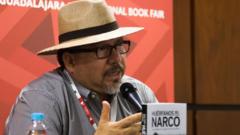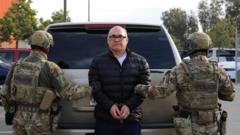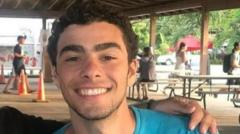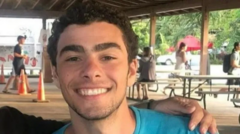The British Columbia court proceedings reveal deeper complexities of a historical tragedy intertwined with modern violence, connecting the past and present of Canada's Sikh community.
Guilty Pleas in Assassination of Acquitted Air India Bombing Suspect
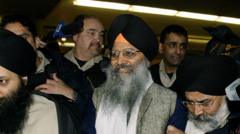
Guilty Pleas in Assassination of Acquitted Air India Bombing Suspect
Two hitmen admit to murder of Sikh businessman Ripudaman Singh Malik, linked to legacy of the 1985 Air India bombings.
In a dramatic courtroom event, Tanner Fox and Jose Lopez have pleaded guilty to the second-degree murder of Ripudaman Singh Malik, a Sikh businessman previously acquitted of his involvement in the infamous 1985 Air India bombings. Their guilty pleas were entered in a British Columbia Supreme Court on the brink of their trial for first-degree murder, a decision that stunned observers. The day took a chaotic turn when an altercation erupted between the two men, as they were reportedly “punching and clawing” at each other, requiring intervention from court sheriffs.
Malik, who was shot multiple times on July 14, 2022, outside his business in Surrey, had a complicated history marked by the tragic legacy of the Air India incident. On June 23, 1985, Air India flight 182 was bombed off the Irish coast, resulting in the tragic deaths of 329 passengers, mainly Canadian citizens. The attacks were believed to have been retributions driven by the aftermath of the 1984 storming of the Golden Temple in India, a pivotal event in Sikh history.
The prosecution's case against Fox and Lopez revealed they were contracted to kill Malik, but the identity of their employer remains unclear. Evidence collected by the police indicated connections between the hitmen and the murder scene. Handguns used in the shooting were discovered at residences linked to the accused, alongside a sum of cash, raising further questions about the underlying motivations and implications of this crime.
Malik's family has publicly urged thorough cooperation with investigative authorities to uncover the orchestrators behind the assassination. They expressed, “Until the parties responsible for hiring them and directing this assassination are brought to justice, the work remains incomplete.” The complexity of justice in this case extends to the broader historical context, with Malik having been acquitted in 2005 alongside Ajaib Singh Bagri of allegations related to mass murder and terrorism.
When anticipating the legal proceedings to follow, the focus will now shift towards sentencing hearings scheduled for October 31. Though the second-degree murder pleas suggest automatic life sentences for both men, the central issue will pertain to the length of time they must serve before being eligible for parole opportunities.
As the case continues to unfold, it highlights the persistent impacts of Canada’s darkest terrorist act, showcasing how intertwined personal vendettas with historical grievances can echo throughout generations in communities. This incident resonates deeply within the Sikh diaspora, as they grapple with historical trauma alongside ongoing cycles of violence.








